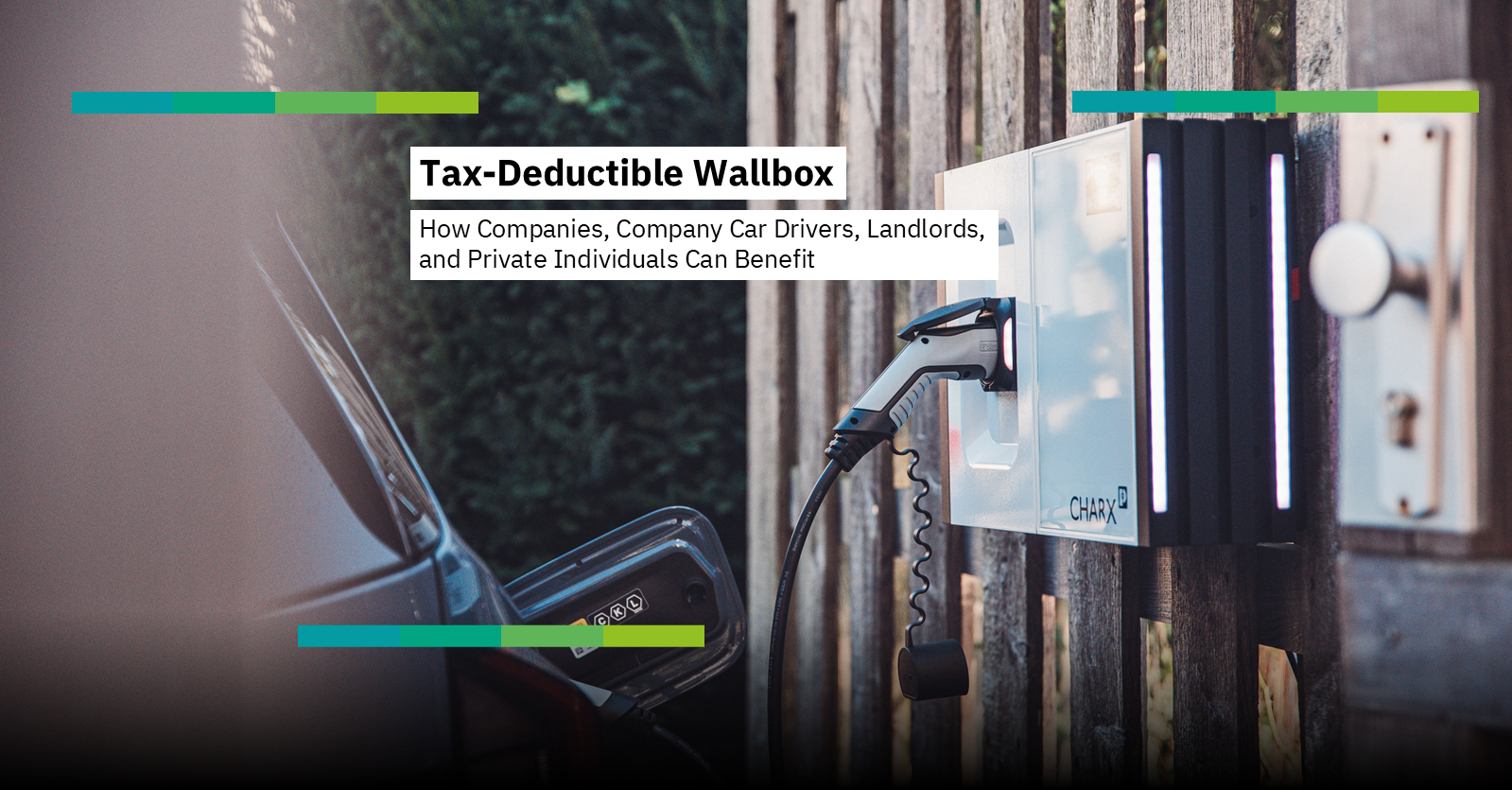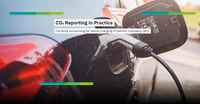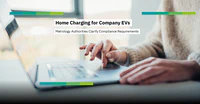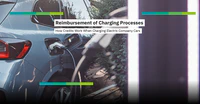Electrifying company fleets is a key step toward sustainable mobility. More and more companies are enabling employees to charge their company cars at home using a wallbox. But how can the costs for purchase and installation be deducted for tax purposes? And what applies if the wallbox remains the property of the company? This article provides an overview of the basics, differences, and practical tips.
Note: This article does not constitute tax or legal advice. All information is for general orientation only. For binding information, please consult your tax advisor or a qualified professional.
Basics and Depreciation
Wallboxes are considered independent assets for tax purposes. Companies can depreciate the purchase costs over several years. Straight-line depreciation typically occurs over eight years at approximately 12.5% per year. Installation and commissioning costs are also deductible if the invoice is issued to the company and payment is made via bank transfer.
Subsidies and Grants
The nationwide KfW subsidy program has ended. However, many federal states and municipal utilities still offer grants for wallbox installation. These can cover up to 40% of the costs. It’s worth checking regional programs.
Wallbox Owned by the Company
If the company purchases the wallbox, it remains its property. Advantages include the ability to deduct costs as business expenses and to specify the model. Disadvantages include responsibility for installation, maintenance, and repairs, as well as liability for damages. If the employee changes or relocates, the wallbox is often difficult to remove or replace, leading to additional administrative effort, such as renting the hardware to employees.
According to the German Federal Ministry of Finance letter dated September 29, 2022, temporary private use of the charging equipment is tax-free.
Alternatively, the purchase can be left to the company car user. This solution offers more flexibility, for example in case of relocation or a change of employer. Either the employee bears the full cost or receives a subsidy from the employer. However, this subsidy or full cost coverage must be taxed at a flat rate of 25% if it is paid in addition to the regular salary.
Download our charge@home Guide now!
Our guide highlights the requirements for a home charging solution and explains what is needed to use it for legally compliant billing of company cars. Learn more about the installation of wallboxes, legal frameworks, and efficient billing solutions for home charging.
REQUEST GUIDE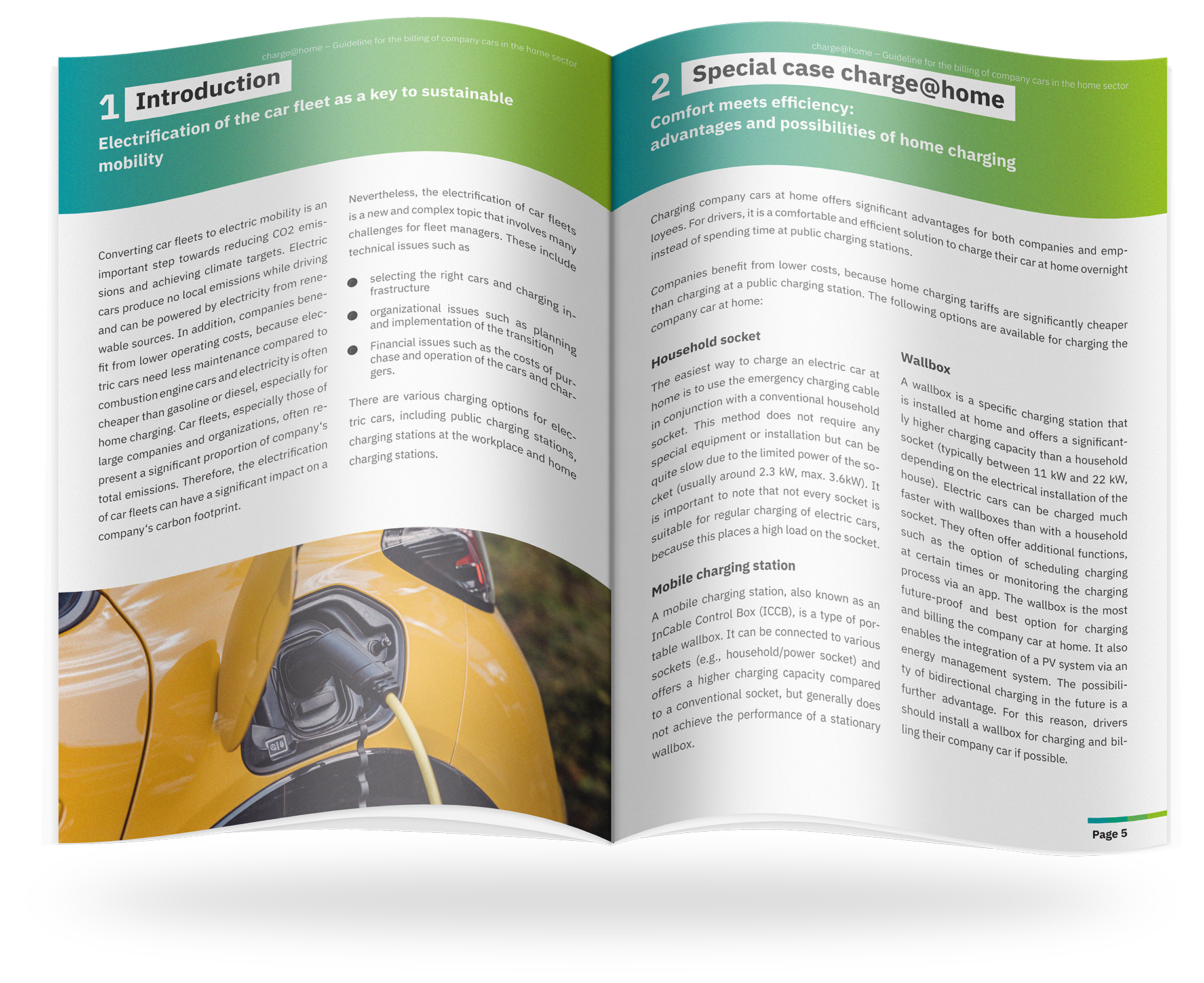
Tax Benefits for Landlords and Private Individuals
Landlords can deduct purchase, installation, and approval costs with the grid operator for tax purposes. Wallboxes are considered independent assets and can be depreciated over six to ten years. The shorter the depreciation period, the faster tax savings can be realized.
Private individuals can also benefit. Installation costs are deductible via the craftsman bonus. Up to 20% of a maximum of €6,000 can be refunded. The prerequisite is an official invoice with itemized labor costs paid via bank transfer.
Practical Tips
Keep invoices and payment records carefully
Define depreciation period: eight years is standard, check for special depreciation options
Install metering systems for accurate billing in case of mixed use
Check funding opportunities: regional programs can reduce investment
Clarify ownership and liability in writing and transparently
Charge Repay Service: Billing Home Charging Sessions
Billing for home charging sessions is often complex. The Charge Repay Service enables legally compliant billing regardless of the wallbox model. Charging sessions are automatically recorded, billed, and reimbursed – with minimal manual effort.
Conclusion
Tax deduction of a wallbox offers advantages for companies, company car users, landlords, and private individuals. The key is to clarify ownership. Those who know the rules and document all evidence can save costs and establish a legally secure foundation for e-mobility. The choice of ownership model should be well considered and tailored to individual needs.
